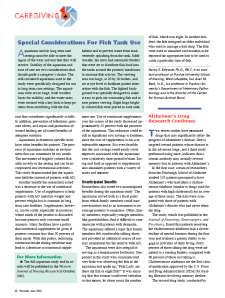I just read an article from care ADvantage magazine published by the Alzheimer’s Foundation of America regarding interacting with those who have a dementia or Alzheimer’s. I believe this applies whether you have a loved one living alone, with family or in a care community and it is well worth sharing… ~ Becky
 The “Best Friends Approach” seeks to make life better for individuals with dementia and caregivers by adapting a comprehensive philosophy that is easy to understand and founded in a familiar concept: friendship. Adopting this approach helps diminish pain and loss, and allows the relationship to take on a new definition.
The “Best Friends Approach” seeks to make life better for individuals with dementia and caregivers by adapting a comprehensive philosophy that is easy to understand and founded in a familiar concept: friendship. Adopting this approach helps diminish pain and loss, and allows the relationship to take on a new definition.
“Everyone wants to be treated as a real person and being treated as a best friend is what they need most of all.” said Virginia Bell, MSW, co-founder of the Best Friends Approach.
Her bottom line: “We all feel better when we are with our best friends.”
Here are key points to apply when taking on the role of a best friend for someone with memory loss:
1. Friends know each other’s personality and history.
A best friend becomes the person’s memory, is sensitive to traditions, and respects the person’s personality, moods and problem-solving style.
2. Friends do things together.
A best friend enjoys activities with the person with dementia, involves the person in activities and chores, initiates activities, encourages the simple things in life and celebrates special occasions.
3. Friends communicate.
A best friend listens skillfully, fills in the blanks, asks easy questions and encourages participation in conversations.
4. Friendship builds self-esteem.
A best friend gives compliments often, carefully asks for advice or opinions, and always offers encouragement and congratulations.
5. Friends laugh together often.
A Best friend tells jokes and funny stories, is spontaneously fun and uses humor often that makes fun of his or her own weaknesses.
6. Friends are equals.
A best friend doesn’t talk down to people, works to help the person “save face,” doesn’t assume a supervisory role and knows that learning is a two-way street.
7. Friends work at the relationship.
A best friend is not overly sensitive, does more than half the work, builds a trusting relationship and shows affections often.
Based on “A Dignified Life: The Best Friends Approach to Alzheimer’s Care,” written by Virginia Bell, MSW, and David Troxel, MPH (Health Communications, Inc., 2002).








